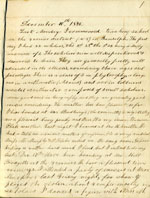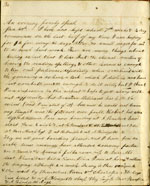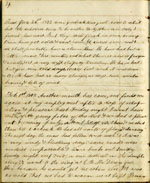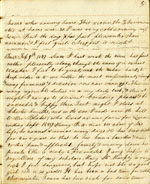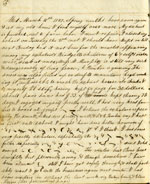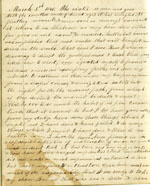Diary
Entries Dating From
December 10, 1846 - March 5, 1948
This manuscript diary in its completion ranges from December 10, 1846 to July 17, 1848, with a final entry many years later in his life. Francis B. Paine of Randolph, Orange County, Vermont, was a highly sociable young seasonal schoolteacher, a musician, a family farmhand, a reader, and opponent to both slavery and the Mexican War. Francis was the youngest of eight children and lived in his parents’ farmhouse during his diary entries. He was found performing a range of farm chores and taught 10-week seasonal school sessions in Randolph. In his diary, Paine described the attributes and scholarship of named and unnamed (often written in code) students and commented on the beauty of female students. Paine recorded his susceptibility to female students’ charms. Paine was a lover of nature and a lover of company. The diary is 159 pages, some of which his feelings, thoughts, and remarks concerning school can be read below. [1] In these entries, the reader will get a sense of education in Vermont. Schools were established in towns by the legislature for the convenient instructing of youth. However, as noted in some of his entries, attendance percentages were not always that strong. [3]
Francis
Paine’s first journal entry provides us with his thoughts on becoming
a teacher. Along with providing us with descriptions of class sizes and
the curriculum offered at the school, Paine also includes his thoughts
on the workload of his new job.
Paine’s
next entry about schooling comes seven weeks into the school year. Not
only does he talk about wages for teachers in the mid 1800’s, but
he also writes about the frustrations that come with the pay. Paine expresses
his opinions on a couple of his students and also speaks of his desire
to improve on his level of patience.
In
this short excerpt from an entry in early February, Paine speaks of his
return to teaching.
Paine
speaks again about the frustration that comes with teaching the children.
We also learn of the of the harshness of a Vermont winter.
March 10, 1847
School is out
with the coming of Spring and Paine must begin his occupation for the
time being, farming. He reflects on the past year of schooling. Again
we see the effects of a harsh Vermont winter and we learn about a years
pay for a teacher in the mid 19th century.
March 5, 1848
School has once again come to a close. Paine reflects on his year as a school teacher. In this entry he expresses some distaste for his experience because of the certain students who did not work hard and benefit from his teaching. Conversely, he praises those student who did strive and achieve. This entry also contains a sense of his feelings in terms of liking students as more than just students.
